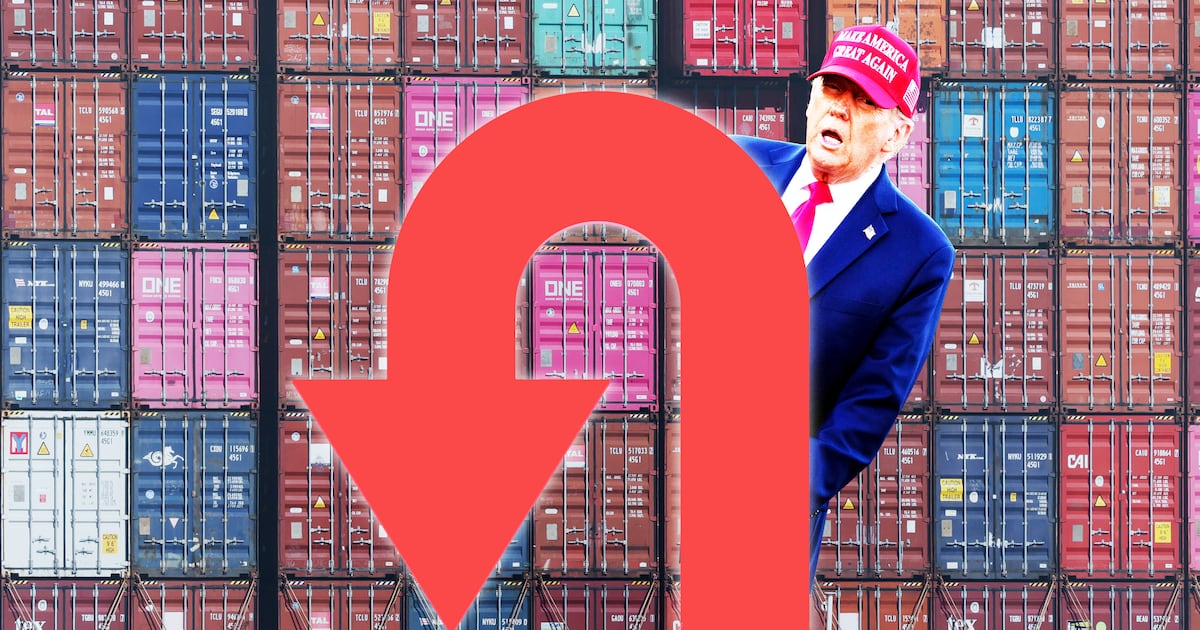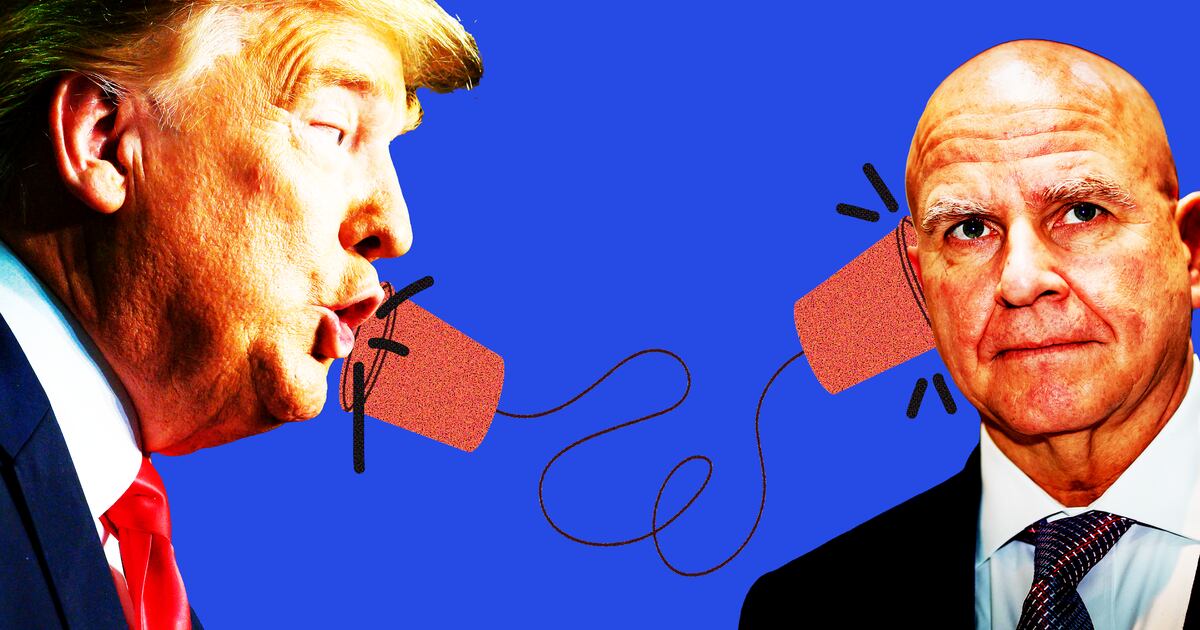The Kremlin admitted Wednesday that the fiery plane crash that killed Wagner boss Yevgeny Prigozhin may not have been an accident—but mum is the word in Moscow on who was behind the supposed assassination.
“It is obvious that different versions are being considered, including the version—you know what we are talking about—let’s say, a deliberate atrocity,” Kremlin spokesperson Dmitry Peskov said.
“Let’s wait for the results of our Russian investigation,” Peskov added.
It’s not clear where the Kremlin will aim its finger-pointing, but hints emerged in recent days that the Kremlin may seek to place the blame on the West for Prigozhin’s death.
A Russian troll army even cropped up earlier this month on Twitter, recently rebranded as X, to blame Ukraine and Western nations for Prigozhin’s death in recent days, as The Daily Beast first reported.
Prigozhin and several Wagner associates were on a flight from Moscow to St. Petersburg on Aug. 23 when their privatge jet fell out of the sky. The crash came just two months after Prigozhin staged a mutiny in Russia, a move the U.S. intelligence community warned would likely lead to an unsavory response from President Vladimir Putin.
The Kremlin has already sought to pour cold water on the idea that Putin himself was behind the killing, apparently using the troll army to muddy the waters over who actually downed the plane and what motives they may have had to carry out the brazen attack.
One account, which goes by the name “Maria,” repeatedly accused the West last week of murdering Prigozhin since he was a thorn in the West’s side.
“The murder of Prigozhin is proof that the West is simply removing people who are unfavorable to them, whom they are afraid of,” the account said.
Another account pointed the finger at Poland for Prigozhin’s offing.
“What can I say about Prigozhin, the West simply decided to remove the person, Poland was very afraid of Wagner, they were definitely involved in the disaster,” the account stated.
Maria also cast suspicion on Ukraine’s intelligence services, likely citing remarks from Kyrylo Budanov, Ukraine’s military intelligence chief, who stated days before Prigozhin was killed that Russia’s Federal Security Service (FSB) had been tasked with killing the Wagner boss.
“Budanov spoke out that Prigozhin had definitely died, how could they know the investigation before, and since they are supervised by the West, it immediately becomes clear where,” the account said.
Other accounts worked to spread the idea that the world should trust the Russian government investigation into the fiery plane crash, encouraging trust in the process.
Peskov’s comments echoed some of the troll army’s narrative spin on Prigozhin’s death. Both the shady social media users and the Kremlin urged Russians to look to the Russian government-led investigation into Prigozhin’s plane crash for answers in the coming days, according to other posts and activity reviewed by The Daily Beast.
Launching narratives that someone else was behind a deliberate attempt to kill Prigozhin is a classic Russian attempt to inject uncertainty into the public discourse about what is ground truth, said Larry Pfeiffer, a former senior director of the White House Situation Room and chief of staff to the director of the CIA.
“For them it’s always been about plausible deniability. They want to be able to sow enough doubt out there that they can try to convince some people they clearly weren’t behind this, how horrible to be accused of that,” Pfeiffer told The Daily Beast. “Secondly it just causes chaos out there, it sows confusion.”

And although it looks like Putin was likely the man behind the hit job, he likely doesn’t want to take full credit to try to maintain his reputation back home, John Herbst, a former U.S. ambassador to Ukraine, told The Daily Beast.
Russians have been paying tribute to Prigozhin since his death, laying flowers and poetry at his grave in St. Petersburg on Wednesday in an outpouring of support for the dead mercenary leader.
Putin is likely aware of the deluge of support for Prigozhin and doesn’t want to alienate that tranche of the Russian public by claiming responsibility for Prigozhin’s death, said Herbst. Putin is likely backing the calculated effort to make it look unclear, at least for now, who exactly was behind the crash, to divert attention away from himself.
The Kremlin’s goal is to wrap up questions on how Prigozhin died “without overly antagonizing the Russian public that sees Prigozhin as a hero,” Herbst told The Daily Beast.
“Prigozhin does have a certain fan base in Russia,” Herbst added, pointing to the outpouring of support at his grave. “It’s understood by the Kremlin that their Prigozhin problem is related to their failed war in Ukraine and a combination of the relative success… that Prigozhin enjoyed as opposed to the regular Russian military… It’s pretty clear that Prigozhin took better care of his soldiers than the Ministry of Defense and the Russian military took care of theirs.”
But some Russians may buy into the idea that the West had it out for Prigozhin, said Herbst.
“There will be a certain slice of the population that will slurp that up. There will be another slice that wonders what happened, or another slice that thinks this was the hand of Putin.”
And while some of the narrative from the Kremlin might be aimed at the Russian public, Putin might also have his sights set on giving cover to other countries that don’t want to be caught outright criticizing the Kremlin by providing alternative culprits for the fiery takedown of Prigozhin.
“It allows people—some nations or some leaders—to be ambivalent, as opposed to condemning Russia,” Pfeiffer said. “They may peel off somebody that might otherwise be predisposed to what the West is saying.”
Behind the scenes, the message for the Russian military and Putin’s inner circle of elites following the plane crash still likely remains the same: to not defy Putin, or else face the consequences.
“There is a calculated effort, a nuanced effort, to let it be clear in certain circles that Putin cannot be crossed. Prigozhin paid the price for crossing Putin,” Herbst said.
It’s not clear if the Kremlin will settle on one narrative about who was responsible for the killing, whether that be Poland or Ukraine or some other government.
For Putin, keeping the circumstances surrounding Prigozhin’s death mysterious and debatable may be paramount moving forward.
“The main point is just to have all these other possibilities out there to sow doubt. In fact, having a bunch of them out there as opposed to one makes it easier to not have to respond,” Herbst said. “Putin lives—he even thrives—in a world of ambiguity.”







